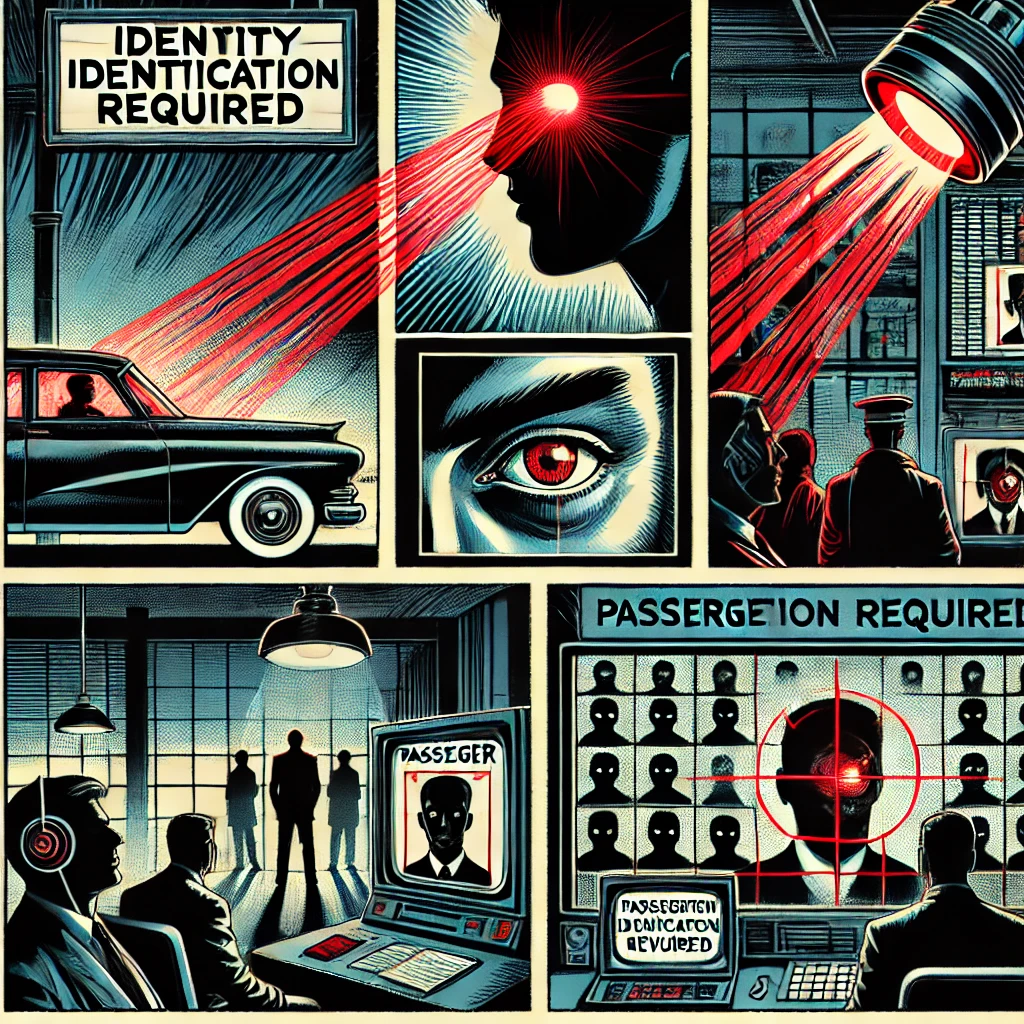VFR Vehicle Face Recognition
Automakers are not “stupid” but merely serving the Devil who will otherwise smite them.
The automotive industry is moving quickly now to take away one of the last freedoms most Americans still have: the ability to get in one’s own vehicle and drive anywhere one wants, whenever they want to.
In an announcement this week, Biometric Update reported that almost all of the major automakers have either recently announced or have already patented facial recognition technologies that will require drivers to supply a scanned image of their faces in order to use their autos in the near future.
A slew of the world’s largest automakers, including Sony, Honda, Ford, Genesis, and Mullen Automotive, have all either recently announced or patented facial recognition technologies.
A newly unveiled prototype car from Sony and Honda, called “Afeela,” is set to employ facial recognition to unlock the vehicle and open its door.
Ford is yet another example of a major automaker that appears it could be getting into the action. In June, the auto giant filed a patent application for “enhanced biometric authorization,” which includes but is not limited to facial recognition.
VFR Vehicle Face Recognition
VFR Vehicle Face Recognition refers to the application of facial recognition technology in vehicles, typically for security and safety purposes. Here’s an overview of how it works and its potential applications:
1. Technology: Vehicle face recognition systems utilize advanced algorithms and artificial intelligence to analyze images or video footage captured by onboard cameras. These systems can detect and identify human faces within the vehicle’s vicinity, even under varying lighting conditions and angles.
2. Authentication and Access Control: One potential application of vehicle face recognition is for authentication and access control. By scanning the faces of drivers or passengers, vehicles can verify their identities and grant access to the vehicle or specific features, such as starting the engine or unlocking doors. This can enhance security and prevent unauthorized use of the vehicle.
3. Driver Monitoring: Vehicle face recognition can also be used for driver monitoring and identification. By continuously analyzing the driver’s face, the system can detect signs of drowsiness, distraction, or impairment and provide alerts or take corrective actions to ensure safe driving. Additionally, it can customize vehicle settings based on individual driver preferences.
4. Security and Anti-theft Measures: Vehicle face recognition systems can serve as an additional layer of security and anti-theft measures. In the event of unauthorized access or suspicious activity, the system can trigger alarms, notify authorities, or activate immobilization features to prevent theft or vandalism.
5. Personalization and Convenience: Beyond security, vehicle face recognition can enhance the overall user experience by personalizing settings and features based on individual preferences. For example, the system can adjust seating position, climate control, and infotainment settings to match the recognized driver’s preferences automatically.
6. Challenges and Considerations: While vehicle face recognition offers several potential benefits, there are also challenges and considerations to address, including privacy concerns, accuracy and reliability of the technology, potential biases or discrimination, and regulatory compliance. It’s essential for manufacturers to implement robust security and privacy safeguards and ensure transparency and accountability in the use of facial recognition data.
Overall, vehicle face recognition holds promise for enhancing security, safety, and user experience in vehicles, but it’s important to balance the potential benefits with privacy considerations and ethical implications. As the technology continues to evolve, further research and development will be needed to address challenges and realize its full potential in the automotive industry.
The article titled “VFR Vehicle Face Recognition – Car Manufacturers to Require Face Recognition to Drive Their Vehicles in the Near Future,” published on August 25, 2023, on wp.conspira.org, discusses the automotive industry’s move towards implementing facial recognition technology in vehicles.
The article suggests that this technology could potentially restrict personal freedoms by requiring drivers to undergo facial scans to operate their vehicles.
It mentions that major automakers, including Sony, Honda, Ford, Genesis, and Mullen Automotive, have announced or patented facial recognition technologies.
For instance, the prototype car “Afeela” from Sony and Honda is set to employ facial recognition for unlocking the vehicle and opening its doors.
Additionally, Ford filed a patent application in June for “enhanced biometric authorization,” which includes facial recognition.
The article raises concerns about the potential implications of such technologies on personal freedoms and privacy.
It’s important to note that while facial recognition technology can enhance security and personalization in vehicles, it also raises significant privacy and ethical considerations.
The implementation of such technologies should be approached with caution, ensuring that robust security measures and privacy safeguards are in place to protect users’ data and rights.
